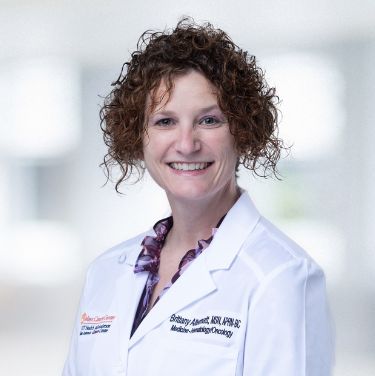Clinical social worker receives 2024 Presidential Award
Join us in celebrating Carol Sherman's outstanding achievement as a Presidential Staff Excellence in Service winner at the 2024 Presidential Excellence Awards. Discover her remarkable contributions and unwavering commitment to supporting the our patients, families, and caregivers.
Treating the rise of colorectal cancer with personalized care
In some cases, colorectal cancer patients have tumors that are inoperable and spread to the liver. For these patients, the Mays Cancer Center offers a specialized chemotherapy delivery system called hepatic artery infusion, also known as HAI pump therapy.
Basil benefits: Nourishing cancer warriors
Explore beyond basil's culinary charm into its therapeutic potential for patients with cancer. Discover how its antioxidants, anti-inflammatory compounds, immune-boosting nutrients, and stress-reducing properties can complement treatments. Learn easy ways to incorporate basil into meals, like a delectable basil pesto recipe.
Jessica Treviño Jones, MD Breast Oncology , Cancer Genetics and High-Risk Screening
New Surgical Clinical Trial Recruiting Women with BRCA1 Mutations at High Risk for Ovarian Cancer
A New Ovarian Cancer Clinical Trial at UT Health San Antonio MD Anderson Cancer Center is Investigating Efficacy of Surgical Pathways for Women Harboring High-Risk BRCA1 Genetic Mutations Women harboring mutations in the BRCA1 gene face an incredibly high risk of developing ovarian cancer during their lifetime and much higher risks for peritoneal cancer and […]
Promising compound kills range of hard-to-treat cancers by targeting a previously undiscovered vulnerability
ERX-41, developed by UT Health San Antonio scientists, exploits a previously unrecognized weakness in breast cancer and other solid tumors. Media contact: Will Sansom, 210-567-2579, Sansom@uthscsa.edu SAN ANTONIO (June 2, 2022) – A compound, developed by a team including scientists from The University of Texas Health Science Center at San Antonio, kills a range of hard-to-treat cancer […]
Mays Cancer Center featured for its value to the region’s population and economy
In a special section of the June 17, 2022, San Antonio Business Journal, experts from Mays Cancer Center at UT Health San Antonio discuss the broad scope of cancer patient care and lifesaving research taking place daily at the center and its value to the local community and regional economy.
Mays Cancer Center receives grants, continued support from American Cancer Society
Contact: Eileen Teves, 210-450-7239, tevese@uthscsa.edu SAN ANTONIO (June 13, 2022) – In late April, American Cancer Society (ACS) awarded the Mays Cancer Center, home to UT Health San Antonio MD Anderson Cancer Center, two check donations in the amounts of $480,000 for an institutional research grant and $65,000 for cancer support grants. Both checks were […]

 Close
Close


